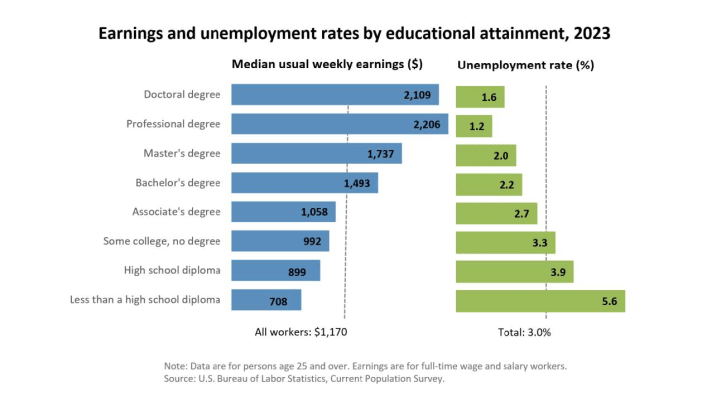Building a Better Future: Developing the Path for Social Mobility through Commercial Real Estate

Providing the next generation with opportunities for social mobility starts with a solid foundation in education and career-focused skill development. According to the Bureau of Labor Statistics, higher levels of education are associated with lower unemployment rates and higher earnings. Each educational milestone not only builds valuable skills, but also opens doors to better paying jobs and demonstrates qualities employers value, such as the ability to plan, meet deadlines, and follow through on commitments. 
With its broad array of opportunities and employer demand for entry level positions, the commercial real estate (CRE) industry is a compelling career pathway for students and young adults. Unfortunately, we too often hear that many of those students are not aware of the CRE field and the opportunities it provides. This is where centers for real estate in higher education institutions serve as important connection between education and a career pathway.
By serving as an important bridge, university real estate centers engage with industry leaders to bring the necessary and current skills into the classroom. This practical knowledge, combined with expertise of higher education professors, develops the desired talent supply. Additionally, industry partners provide crucial internships that supplement a textbook education with practical experience, allowing students to apply their learning and enhance their understanding.
Some university real estate centers, including Portland State University (PSU) and Roosevelt University (both run by CREW Network leaders), specialize in representing diverse students. Highlights of the center outcomes:
Overview of PSU (Portland, Oregon)
Industry leaders came together in 2004 to support the development of a graduate program in real estate
In 2020, PSU created a property management minor within the School of Business program in response to feedback from industry leaders
75% of students identify as racial-ethnic minorities
50% are first generation college students
10 paid summer internships were provided with local industries in 2024
58% of graduated students with a Certificate or Minor in Property Management are employed in real estate companies
Roosevelt University/Marshall Bennett Institute of Real Estate (Chicago, Illinois)
Provides a general CRE education for undergraduates (major and minor concentrations)
Specialized real estate graduation for graduate students
Undergraduate major began in 2019 and has grown at least 20% per year
Current undergraduate cohort identifies as 50+% racial-ethnic minorities and 40% female
Internships are a requirement for undergraduate graduation
85+% of graduated undergrad students are currently employed in the real estate industry
Creating diverse talent is only the first step; the real impact comes from providing students with innovative and intentional opportunities for applied learning. Industry leaders play a crucial role in shaping the future of their fields by offering programs like internships, mentorships, and real-world projects. Reach out to a Center for Real Estate within your region to build the important relationships students need to excel in a CRE career.
Large companies can bring extensive resources and exposure to cutting-edge technologies, while smaller firms can offer personalized mentorship and hands-on experience in specialized markets. By working together with educational institutions, these organizations help prepare students for success and drive the evolution of the industry.
Real estate thrives on networks and relationships. By opening doors and offering meaningful support to students entering the field, companies can cultivate the next generation of talent, ensuring that CRE becomes more diverse, resilient, and sustainable. Through ongoing collaboration between industry and education, we can work together to build a stronger, more inclusive future.
Alisa Pyszka
Alisa Pyszka is Barry Menashe Family Executive Director of the PSU Center for Real Estate and 2023 President of CREW Portland.
Connect on CREWbiz
Collete English Dixon
Collete English Dixon is Executive Director, Marshall Bennett Institute of Real Estate, Roosevelt University and 2011 President of CREW Network, 2009 Chair of the CREW Network Foundation, and 2004 President of CREW Chicago.
Connect on CREWbiz